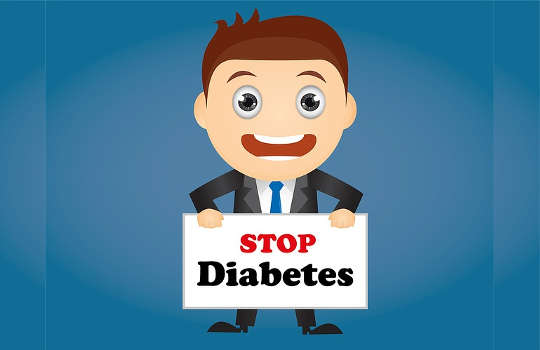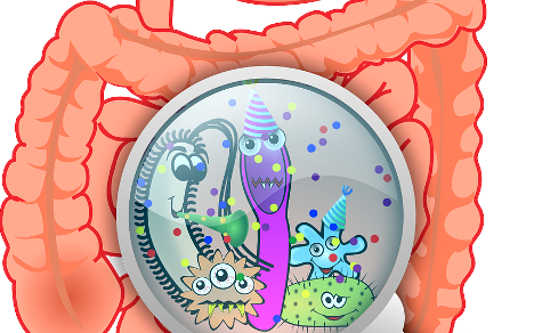 Placebos have been found, at times, to work nearly as effectively as materialistic treatments. One series of studies covering more than one thousand patients showed that 35 percent reported significant relief from a variety of ailments after treatment with a placebo.
Placebos have been found, at times, to work nearly as effectively as materialistic treatments. One series of studies covering more than one thousand patients showed that 35 percent reported significant relief from a variety of ailments after treatment with a placebo.
 The U.S. has seen substantial improvements in life expectancy over the past century, particularly for those who are better-educated and more affluent.
The U.S. has seen substantial improvements in life expectancy over the past century, particularly for those who are better-educated and more affluent.
 Mice exposed to household fabrics contaminated with third-hand tobacco smoke showed changes in biological markers of health after only one month, a recent study found.
Mice exposed to household fabrics contaminated with third-hand tobacco smoke showed changes in biological markers of health after only one month, a recent study found.
 What most people don’t know is that with a bit of hard work, it is possible to become non-diabetic again.
What most people don’t know is that with a bit of hard work, it is possible to become non-diabetic again.
 A succession of surveys by Saga have shown that we are more frightened of developing dementia in old age than any other condition including cancer, and the language we use to talk about it: “raw horror” and “living death” speak volumes of the deep unease the prospect of dementia stirs.
A succession of surveys by Saga have shown that we are more frightened of developing dementia in old age than any other condition including cancer, and the language we use to talk about it: “raw horror” and “living death” speak volumes of the deep unease the prospect of dementia stirs.
 New research suggests that acupuncture may help patients suffering from certain esophageal disorders that make swallowing difficult.
New research suggests that acupuncture may help patients suffering from certain esophageal disorders that make swallowing difficult.
 People with extremely high levels of so-called “good cholesterol” have a 65% higher mortality rate than people with normal levels, according to a new Danish study. Does this mean that good cholesterol has gone from hero to villain?
People with extremely high levels of so-called “good cholesterol” have a 65% higher mortality rate than people with normal levels, according to a new Danish study. Does this mean that good cholesterol has gone from hero to villain?
 If you speak to someone who has suffered from insomnia at all as an adult, chances are good that person has either tried using marijuana, or cannabis, for sleep or has thought about it.
If you speak to someone who has suffered from insomnia at all as an adult, chances are good that person has either tried using marijuana, or cannabis, for sleep or has thought about it.
- By Robert Bruce
 Affirmations are statements of intention that can be used for anything: to attract wealth, for life changes, to find a perfect partner, for self healing -- from curing diabetes to losing weight to quitting smoking, etc...
Affirmations are statements of intention that can be used for anything: to attract wealth, for life changes, to find a perfect partner, for self healing -- from curing diabetes to losing weight to quitting smoking, etc...
 A new study has added weight to the debate as to whether fat is better or worse for you than carbohydrates, in terms of risk of heart disease and early death.
A new study has added weight to the debate as to whether fat is better or worse for you than carbohydrates, in terms of risk of heart disease and early death.
 Our latest research found that female doctors are better at empathy than male doctors, and this probably makes them better doctors.
Our latest research found that female doctors are better at empathy than male doctors, and this probably makes them better doctors.
 Mice that are deprived of an essential fatty acid, called docosahexaenoic acid (DHA), during pregnancy, are more likely to produce pups that display schizophrenia-like symptoms as adults, according to a new study from Japan.
Mice that are deprived of an essential fatty acid, called docosahexaenoic acid (DHA), during pregnancy, are more likely to produce pups that display schizophrenia-like symptoms as adults, according to a new study from Japan.
 As we get older, our thinking skills often deteriorate: we get slower, more forgetful, less good at learning new things. Yet not everyone experiences these changes to the same degree. Some remain mentally sharp...
As we get older, our thinking skills often deteriorate: we get slower, more forgetful, less good at learning new things. Yet not everyone experiences these changes to the same degree. Some remain mentally sharp...
 Many of us know that our children’s posture is a problem. We struggle to know what to do about it, having already learned the futility of simply telling a child to “sit up straight.” Truth be told, we often are at a loss to know how to inhabit our own bodies in ways that are comfortable and relaxed, yet strong and energetic.
Many of us know that our children’s posture is a problem. We struggle to know what to do about it, having already learned the futility of simply telling a child to “sit up straight.” Truth be told, we often are at a loss to know how to inhabit our own bodies in ways that are comfortable and relaxed, yet strong and energetic.
 If you don’t smoke, then your major risk factor for dying is probably your age. That’s because we have nearly eliminated mortality in early life, thanks to advances in science and engineering.
If you don’t smoke, then your major risk factor for dying is probably your age. That’s because we have nearly eliminated mortality in early life, thanks to advances in science and engineering.
 It is surprising that sighing has not been a topic of empirical psychological research until the twenty-first century. About the only place sighing makes an appearance is in studies of panic disorder, where it has been shown that such patients “hit reset” about twice as frequently as control subjects...
It is surprising that sighing has not been a topic of empirical psychological research until the twenty-first century. About the only place sighing makes an appearance is in studies of panic disorder, where it has been shown that such patients “hit reset” about twice as frequently as control subjects...
 It’s fair to say parasites are generally bad for their hosts. Many cause disease and death so, like most species, we humans usually try to avoid infection at all costs
It’s fair to say parasites are generally bad for their hosts. Many cause disease and death so, like most species, we humans usually try to avoid infection at all costs
 The most heavily used pesticide in California, elemental sulfur, may harm the respiratory health of children who live near farms that use it, new research suggests.
The most heavily used pesticide in California, elemental sulfur, may harm the respiratory health of children who live near farms that use it, new research suggests.
 The food labeling craze coupled with banner headlines about the dangers of gluten, genetically modified organisms (GMOs) and hormones are leading to increasingly absurd results.
The food labeling craze coupled with banner headlines about the dangers of gluten, genetically modified organisms (GMOs) and hormones are leading to increasingly absurd results.
 Many women get happier in later life, report researchers, particularly in the years between 50 and 70.
Many women get happier in later life, report researchers, particularly in the years between 50 and 70.
 About 10% of us (including 20% of people over 60 and 50% of people over 70) suffer from fungal nail infections. So why do we get them, and does it matter?
About 10% of us (including 20% of people over 60 and 50% of people over 70) suffer from fungal nail infections. So why do we get them, and does it matter?
 It’s widely recognized that emotions can directly affect stomach function. The brain communicates with the gastrointestinal system. A whole ecosystem comprising 100 trillion bacteria living in our bowels is an active participant in this brain-gut chat.
It’s widely recognized that emotions can directly affect stomach function. The brain communicates with the gastrointestinal system. A whole ecosystem comprising 100 trillion bacteria living in our bowels is an active participant in this brain-gut chat.
 Scientists have developed a method for removing more than 99 percent of bisphenol A (also known as BPA) from water quickly and cheaply.
Scientists have developed a method for removing more than 99 percent of bisphenol A (also known as BPA) from water quickly and cheaply.














